- From Dublin to Ethiopia – with love
- CHO Chief Officers
- Interim CEO at St. Vincent’s
- Acting Director Quality Assurance & Verification
- Director Health Business Services
- National Director National Ambulance Service
- Training hours are working hours
- Managed maternity network
- Ombudsman for Children
- Neonatal Intensive Care Unit opened
- First private clinical teaching and research hospital
- Beacon Hospital Deputy CEO
- New laws to regulate surrogacy
- Have your say on identifiers
- A new era in mental health services
- Hospital hand hygiene improving
- HIQA publishes electronic prescribing standards
- Universal GP services for over 70s
- Visit the new HMI website
From Dublin to Ethiopia – with love
Ann Brennan, who retired as Quality and Risk Manager from St. Michael’s Hospital, Dun Laoghaire, Co. Dublin last Christmas, left her husband, children and grandchildren on Valentine’s Day to work as a volunteer in Ethiopia for a year.
She will spend the next 12 months, with global international development organisation VSO, volunteering as a Hospital Administrator in Hawassa in the Southern Nations, Nationalities and People’s Region of Ethiopia.
‘It’s not as simple as just sending more doctors and nurses overseas. You need to look at the whole picture and make sure it all fits together. That’s how I see my role – bringing the pieces together to make the whole system work for everyone.
“I have been very fortunate in my career. I have loved all the hospitals in which I have worked and I have worked with super people and I see this as a way of giving something back,” said Ann before she left.
On average, in Ethiopia every year, 10,000 women die as a result of complications during pregnancy and 135,000 babies die before their first birthday.
Ann started her career at Mercer’s Hospital, then moved to Sir Patrick Dun’s and from there to Harcourt Street Children’s Hospital before taking up a post in St. Michael’s. She lectured in health service management for about 20 years in the Dublin Institute of Technology Kevin Street College and over the years has been deeply involved in change and change management.
“There is a lot of poverty, a need for change and a need to implement change in Ethiopia,” she said.
I also think it’s nice to be able to highlight that retired people can volunteer abroad and do good. I always wanted to do something like this and I just now got the opportunity. However, I think my husband wasn’t best pleased that I was leaving on Valentine’s Day.”
She has never been to Ethiopia before and will not return to her husband, two daughters and five grandchildren until the end of her 12 months stint.
VSO volunteers, from medicine, nursing and health management, are working together to develop long-lasting and sustainable solutions to these horrific challenges.
Ann, from Killiney, Co. Dublin met VSO at the Irish Aid Volunteering Fair last October “and I was struck by their passion and how well organised they were.
‘There is a fantastic amount of positive work taking place in the Ethiopian health system at present. VSO is leading the way in improving maternal and paediatric care and my role, in Hawassa, is to ensure that the hospital runs as efficiently and effectively as possible to enable the medical and nursing staff do what needs to be done to reduce needless deaths’ said Ann.
‘The difference between VSO and other organisations is the special focus on training and mentoring. I could go out and do the job but who would replace me when I returned to Ireland?’
‘I’ll know my placement has been a success if and when there isn’t a need for another volunteer to replace me. This is something I have always wanted to do. It’s not going to be easy but I am confident that progress can and will be made.”
‘Volunteers, together with our local partners in countries like Ethiopia are having a significant impact in reducing needless deaths and equally important, our volunteers help establish and embed sustainable solutions to address these health challenges for the long term’ said Megan Munsell, VSO Ireland Executive Director.
‘Over the past two years, volunteers supported by Irish Aid have successfully reduced neo-natal mortality rates in target hospitals by 66% ensuring thousands of families don’t endure the trauma of losing a child..
VSO Ireland is an international development organisation that works through volunteers to fight poverty. Through the placement of skilled, professional volunteers in over 30 countries in Africa and Asia, VSO is fight both the causes and effects of poverty: access to a quality education, access to healthcare and the ability to earn an income. VSO is currently recruiting skilled, experienced professionals in the areas of education and teaching, medicine, nursing and health management, and business and community development. For more information, please visit www.vso.ie or call 01 640 1060.
CHO Chief Officers
Seven Chief Officers have been appointed to the nine new Community Health Organisations.
- Mr. John Hayes is Chief Officer for CHO Area 1, which covers Cavan/Monaghan, Donegal and Sligo/Leitrim/West Cavan.
- Mr. Bernard Gloster is Chief Officer for Area 3 which covers Clare, Limerick and North Tipperary/East Limerick.
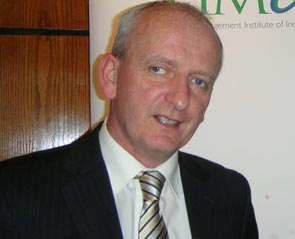
- Mr. Gloster is also covering Area 2 which covers Galway, Roscommon and Mayo.
- Mr.Ger Reaney is Chief Officer for Area 4 which covers North Cork, North Lee, South Lee, West Cork and Kerry.
- Ms. Martina Queally is Chief Officer for Area 6 which covers Dublin South East, Dun Laoghaire and Wicklow.
- Mr. David Walsh is Chief Officer for Area 7 which covers Dublin South City, Dublin West, Dublin South West and Kildare/West Wicklow.
- Mr. Walsh is also covering Area 5, which covers Waterford, Wexford, Carlow/Kilkenny and Tipperary South.
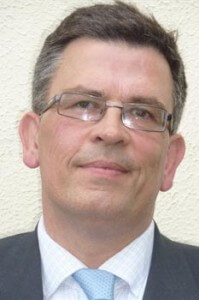
- Mr. Pat Bennett is Chief Officer for Area 8 which covers Laois/Offaly, Longford/Westmeath, Louth and Meath.
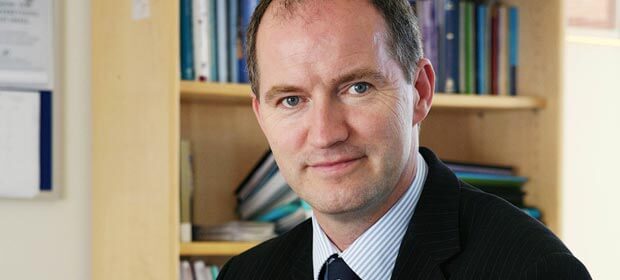
- Mr. Gerry O’Neill is Chief Officer for Area 9, which covers Dublin North Central, Dublin North West and Dublin North.
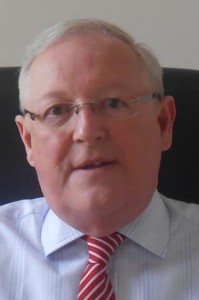

Interim CEO at St. Vincent’s
Prof. Michael Keane has been appointed Interim CEO at St. Vincent’s University Hospital, Dublin. He is also Lead Clinical Director at the hospital.
Professor Keane is Professor of Medicine and Therapeutics at UCD and Consultant Respiratory Physician at St Vincent’s.
He graduated from UCD in 1989 and following initial clinical training in Dublin moved to The University of Michigan, Ann Arbor for a fellowship in pulmonary and critical care medicine in 1995. He subsequently took up a faculty position at University of Michigan in 1998. In 2000 he moved to UCLA where he remained until 2007 when he returned to Dublin.
Acting Director Quality Assurance & Verification
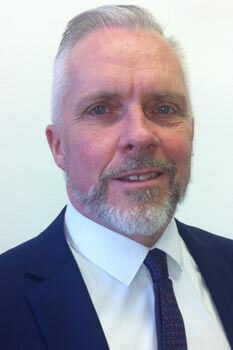
Mr. Patrick Lynch has been appointed to act as HSE National Director of Quality, Assurance and Verification.
From 2010 to 2014 he was Assistant National Director in the Office of the HSE National Director, Integrated Services and then the Office of the HSE Deputy Director General.
Prior to that he held a number of Assistant National Director posts in the HSE, including Population Health and the Transformation Programme. Before the establishment of the HSE he was Deputy Director of HeBE.
Mr. Lynch takes over from Mr. Ian Carter, the National Director of Quality Assurance and Verification who has taken a leave of absence. Before being appointed National Director of Quality Assurance and Verification, Mr. Carter was HSE National Director of Acute Hospitals and prior to that Chief Executive of St. James’s Hospital, Dublin.
Director Health Business Services

Ms. Jane Carolan has been appointed National Director of HSE Health Business Services.
This follows the reassignment of Mr. Liam Woods to the post of National Director, Acute Hospitals Division.
National Director National Ambulance Service

Damien McCallion has been appointed National Director for the Ambulance Service with responsibility for pre-hospital emergency care service in Ireland.
He was previously Area Manager for the HSE in Sligo/Leitrim/West Cavan. This role included responsibility for Primary Care, Mental Health, Social Care and previously for Sligo Regional Hospital, prior to the hospital becoming part of the West/North West Hospital Group. He is also a board member for CAWT (Co-operation and Working Together) which aims to improve the health and well being of the border populations, by working across boundaries and jurisdictions.
Mr. McCallion led the HSE Integrated Services Programme during Prof. Brendan Drumm’s period as CEO of the HSE. He had responsibility for the restructuring of the HSE at that time and the delivery of the Integrated Service Model. He was also Head of ICT in the Health Service Executive (HSE) from 2007 to 2009.
Before that he was Director of Information Systems in the North Western Health Board with responsibility for ICT across all services. During this period significant advances were made in using ICT to improve integration between hospitals and primary care. He was also the national programme manager on the first phase of the SAP HR project that involved implementation of a national HR system to support the management of 70,000 staff.
He spent over ten years in the airline industry with British Airways in several roles through sales, marketing and ICT, where he led out on a major sales force automation change programme.
He recently completed an M Sc. in Change Management that focused on ICT enabled change within a hospital environment. He has lectured on change management and ICT enabled change on a number of Masters programmes.
Training hours are working hours
Ireland had failed to fulfil its commitment under the European Working Time Directive (EWTD) for NCHDs, according to an opinion published by the Advocate General of the European Court of Justice.
The opinion found that Ireland was in breach of European law by excluding NCHDs’ training hours from the concept of “working time.”
The European Court of Justice – which in the vast majority of cases upholds the opinion of the Advocate General – is due to deliver a full judgement within six months.
The Advocate stated that NCHDs were obliged to participate in training and by excluding training time from the calculation of NCHDs’ working hours, Ireland was encroaching on the minimum rest period to which they were entitled.
The Irish Medical Organisation warned that if the European Court upheld the Advocate’s judgment Ireland could face fines of up to €100 million as well as an addidtional €1 million for everyday the Directive continue to be breached.
Minister for Health Leo Varadkar said: “The Department of Health acknowledges that the EWTD has not been fully implemented but good progress has been made in doing so. ‘We are committed to the full implementation of the EWTD. As a demonstration of that commitment, we have hired 400 additional NCHDs in the last two years and are close to eliminating shifts of longer than 24 hours. Reducing average working times to 48 hours or less per week remains a challenge, particularly in smaller hospitals.
‘It’s important to acknowledge that this is an opinion, not a final judgment. Agreement was reached with the IMO in the High Court settlement of 2010, that protected training time did not count as working time. However, that position is now in question pending the final judgment by the European Court of Justice.”
He said attainment of compliance would require reconfiguration of some services. The new Hospital Group structures would support this. Implementation of the recommendations of the MacCraith report in relation to doctor recruitment and retention was also important.
The HSE and voluntary hospitals had been working intensively to advance implementation of the EWTD. The HSE was focused on advancing implementation of the Directive and significant progress had been made in respect of NCHDs. Data from the HSE showed that the average number of working hours for NCHDs was 60 hours a week in 2009, 54 hours per week in 2012 and, at the end of 2014, had reduced to 51 hours per week.
Intensive negotiations conducted at the Labour Relations Commission in September and October 2013 resulted in agreement on a joint approach, involving hospital management, the IMO and NCHDs to achieve EWTD compliance, with an immediate focus on eliminating shifts in excess of 24 hours. Data for October 4 Quarter 2014 shows 95% compliance with this target.
Currently, the HSE was close to full compliance with all of the provisions of the Directive apart from compliance with the 48 hour week, which stands at 68% at the end of January 2015.
The EU Commission formally referred Ireland to the Court of Justice for non compliance with the provisions of the EWTD on February 17, 2014, having taken this decision 1 November 2013. The IMO had submitted complaints to the Commission in respect of the working hours of NCHDs.
“One particular issue in dispute is the extent to which ‘protected training time’ – a few hours per week – counts as working time (or not). A High Court Settlement Agreement in January 2010 between the IMO and the HSE provides that such time does not count as ‘working time’, given that the NCHD would not be available to or at the disposal of the employer during such periods,” said the Department of Health. The Department said it remains hopeful that its position in relation to ‘protected training time’ not counting for work purposes will be upheld.
Managed maternity network
A Memorandum of Understanding has been signed between the Coombe Women & Infants University Hospital and the HSE to establish the country’s first managed maternity network in the Dublin Midlands Hospital Group.
The new governance model will create a single maternity service operating over two geographical sites – the Coombe and the Midlands Hospital, Portlaoise. This is a key recommendation in the Chief Medical Officer’s report on perinatal deaths at Portlaoise Hospital. In particular and according the Department of Health is a significant step for patients because it will allow the sharing of medical expertise and for extra resources.
The terms of the Memorandum were agreed following wide-ranging discussions between the hospital and the HSE over the past year and approved last Wednesday by the Board of the Coombe.
The Department said that work has been underway for some time to strengthen Portlaoise as a hospital with a new manager and extra consultants appointed, and its incorporation into the Dublin Midlands Hospital Group. The Memorandum would allow further additional resources to be supplied to develop the network.
Health Minister, Dr. Leo Varadkar thanked everyone involved in developing the new model, and in particular acknowledged the leadership, commitment and motivation demonstrated by the parties.
“This Memorandum of Understanding is a significant step in improving our maternity services. Patient safety and service quality should always be our top priority, right across the health service. This Memorandum is good news for patients and potential future patients at both Portlaoise and the Coombe,” Minister Varadkar said.
“I want to thank both hospitals and the HSE for reaching this significant agreement. With this Memorandum we now have the template, and I want the HSE to replicate this governance arrangement across all Hospital Groups. This will ensure that smaller maternity services are supported to provide quality and safe maternity care for women and babies”.
Ombudsman for Children
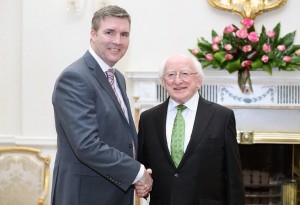
The President, Mr. Michael D. Higgins has appointed Dr. Niall Muldoon as the new Ombudsman for Children.
Dr. Muldoon succeeds Ms. Emily Logan, who was appointed Chief Commissioner of the Irish Human Rights and Equality Commission by the President last year.
Dr. Muldoon was previously the Director of Investigations at the Ombudsman for Children’s Office. A registered Clinical and Counselling Psychologist, he was formerly the National Clinical Director of CARI – children’s charity based in Dublin, Cork and Limerick. He has worked in the area of child protection for nearly 20 years.
Dr. Muldoon was selected for the post by the Public Appointments Service after a process which began last September. There were 97 applicants for the post from both inside and outside the State, with a diverse range of backgrounds.
Speaking following his appointment, Dr. Niall Muldoon said: “I am extremely honoured to have been chosen to become the second Ombudsman for Children in Ireland and I am excited about building on the huge achievements of the Office to date.
“My predecessor, Ms. Emily Logan, built the Office from nothing and she deserves great credit because it now stands as a strong, credible and independent beacon for children all over the country.
“As Ombudsman for Children, I am looking forward to the next six years and ensuring that all children are fully heard and their best interests are placed at the heart of decision-making.
“As we begin to emerge from years of recession, there is a very positive opportunity at this time, to promote the rights and welfare of all children. By aiming to create a more child friendly administration across the Public Service we can ensure that children are to the forefront of the thoughts of decision makers in all areas of public life.
“I look forward to continuing to work with the dedicated team in the Ombudsman for Children’s Office, towards ensuring that Ireland is a place where the rights of children are seen as an immediate consideration in every decision taken by Public Bodies, rather than as an afterthought.”
Neonatal Intensive Care Unit opened
The new Neonatal Intensive Care Unit at the National Maternity Hospital, Holles Street, Dublin, which will cater for some of the sickest infants and most complex cases from across Ireland, has been officially opened by Health Minister, Dr. Leo Varadkar.
The unit was built with €6 million of taxpayers’ money and will allow the most serious cases to be treated in a single location. Staff will be able to build on their clinical experience and deliver the highest possible standard of care. The NMH is a national tertiary referral facility, receiving babies from all over Ireland.
Minister Varadkar said: “Holles Street is right to be proud of its new Neonatal Intensive Care Unit. This state-of-the-art facility was funded with a substantial investment of €6 million. It offers a wide range of facilities, including a central station for monitoring babies, vital equipment, dedicated isolation rooms, and double clinical space around each incubator.
“Neonatology is one of medicine’s greatest success stories from the past 30 years. Back in the early 1980s, 90% of infants born prematurely at 28 weeks died. Today, 90% of those babies will survive. Since it was established, the National Maternity Hospital has played a leading clinical role for women and babies in Ireland. Its reputation is built on high-quality care, and a strong focus on research and education. Long may that continue.”
The Master of the National Maternity Hospital, Dr. Rhona Mahony, said: “We are delighted to exchange the old cramped facilities under the eaves of the roof at NMH for this new modern intensive care unit in the heart of the Hospital. It represents a significant step forward in the quality of care and services we can offer to families attending the hospital and we would like to acknowledge the Government’s support in completing this very important project.”
Welcoming the Minister’s reference to his expectation that a planning application will be lodged later this year for the new co-located National Maternity Hospital on the campus of St. Vincent’s University Hospital, Dr. Mahony said: “We remain very excited about the fantastic plans for the hospital. We look forward to continuing our collaboration with the HSE and St. Vincent’s Hospital Healthcare Group to strive for the development of world class facilities and excellence in maternal and neonatal care.”
First private clinical teaching and research hospital
![]()
Ireland’s first private clinical teaching and research hospital has been established through a partnership between the Beacon Hospital, Dublin and UCD.
The Beacon Hospital Academy will enable UCD healthcare students of medicine, nursing, physiotherapy and radiography take part of their clinical training at Beacon Hospital.
The agreement will also see UCD and Beacon Hospital partner on the development and deployment of new technologies in connected health and personalised medicine.
The first of 20 UCD medical students will commence clinical training at Beacon Hospital in September 2015.
Speaking at the launch the Minister said: “The UCD Beacon Hospital Academy is a great example of collaboration between sectors. This is a new partnership between one of our largest universities and the private hospital sector. It will support students in medicine, nursing, physiotherapy and radiography and will make an important contribution to our health service. I understand it will have a strong focus on teamwork, leadership, management, and emerging technologies. All of these are key to Ireland’s health workforce, in an increasingly complex world. It also looks set to make an important contribution to the research and innovation agenda at a time when more and more patients are being treated using the most modern therapy techniques.”
Through the UCD Smurfit Graduate Business School, UCD will also offer education programmes in healthcare management and leadership to Beacon Hospital.
UCD and Beacon Hospital will further partner on the development and deployment of technologies in connected health and personalised medicine. In the context of connected health, the focus initially will be on remote care for patients following orthopaedic surgery and with chronic conditions such as heart disease and diabetes. This entails the use of monitoring devices to gather information on patients’ conditions and provide treatment while they are at home rather than in hospital. In personalised medicine, this will centre on molecular diagnostics in cancer, harnessing the expertise of UCD’s Systems Biology Ireland. This ground-breaking technology is helping to better tailor therapies to individual patients.
Speaking at the signing of the agreement establishing the UCD Beacon Hospital Academy, Prof. Des Fitzgerald, Principal of the UCD College of Health Sciences, said: “We need our health professionals – doctors, nurses, physiotherapists and radiographers – to have more rounded knowledge, especially in emerging technologies and therapies and to have the interdisciplinary skills required by a modern health service. Our students and trainees will be recognised as the agents of change in healthcare, capable of harnessing and absorbing emerging technologies, role models in their professional fields, trained for interdisciplinary teamwork and global in outlook. We believe that this partnership with Beacon Hospital will complement the training and research we already carry out in our Ireland East Hospital Group and other partner hospitals.”
Professor Mark Redmond, Chief of Staff at Beacon Hospital said: “We are absolutely delighted to be part of this pioneering initiative to combine the best of both public and private sector skill sets and we look forward to many years of educating future leaders in healthcare. Beacon Hospital has over 200 consultants and over 630 staff providing healthcare and we believe our partnership with UCD will create an enhanced environment for treating patients.”
As a first step, the partnership will develop programmes for undergraduate and graduate medical students, initially for approximately 20 students in each of two clinical years of the UCD medical curriculum. Added to this are programmes for medical and nursing trainees, including interns and senior house officers as well as for other healthcare professionals, including physiotherapy and radiography.
Specifically in nursing, these include postgraduate programmes in oncology, emergency and critical care and specialist training in targeted clinical areas, advanced health assessment, health informatics linked to connected health, and applied leadership and management education.
The partnership will also harness UCD’s applied research and technologies to develop two transformative concepts in healthcare that will make management and treatment more personal and precise.
Beacon Hospital Deputy CEO
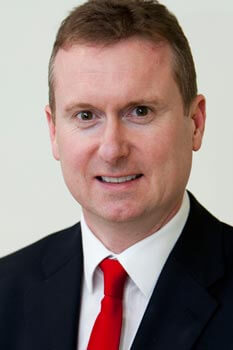
Mr. Brian Fitzgerald has been appointed Deputy Chief Executive Officer at the Beacon Hospital, Dublin.
Mr. Fitzgerald joins the Beacon from St. James’s Hospital, Dublin where he was Chief Executive and Director of Finance.
He is a fellow of the Association of Chartered Certified Accountants and holds an MBA from UCD Michael Smurfit Graduate Business School. He also holds the position of Adjunct Assistant Professor at the Centre of Health Policy and Management at Trinity College Dublin’s School of Medicine.
New laws to regulate surrogacy
The Government is preparing new laws to regulate surrogacy and the broader area of assisted human reproduction and associated research, and bring to an end the legal uncertainty in which these services currently operate.
The Cabinet authorised the Department of Health to prepare the legislation which will regulate a range of practices for the first time, including surrogacy, embryo donation, the screening of embryos for serious genetic diseases, gamete donation and stem cell research.
“The priority throughout will be to safeguard the welfare, safety and best interests of children and to uphold the principles of consent and equality,” said Health Minister, Dr. Leo Varadkar.
The Department of Health is drafting the Heads of the Bill before inviting submissions from interested parties as part of an extensive public consultation process. The Joint Committee on Health and Children will also be invited to hold public hearings on the matter and subject the draft legislation to scrutiny.
“Infertility rates are rising and more and more people are seeking assisted reproduction services. The range and potential of services available is developing rapidly, and things we once thought impossible are now becoming a reality,” Minister Varadkar said.
“Yet Ireland is one of the few countries in Europe which provides assisted human reproduction services without a regulatory framework. This means that individuals are accessing complex and sometimes risky procedures in a legal vacuum. It’s high time to address this matter and impose regulation, limitations and protections to meet the challenges, keep abreast of developments and protect the welfare of any resulting children.”
The draft legislation will include proposals for:
- A Regulator to promote patient safety and good clinical practice in the area of assisted human reproduction;
- The Regulator will maintain a national register of donors, recipients and donor-conceived children and maintain records of all Assisted Human Reproduction (AHR) activities and services;
- Surrogacy in Ireland will be regulated for the first time;
- A ban on commercial surrogacy, however reimbursement of reasonable expenses will be permitted;
- A requirement for intending parents, donors and surrogates to have counselling and give their consent before any procedure.
The specific proposals in the draft Heads of the Bill will include:
- On the basis of equality and non-discrimination AHR services will be available to people irrespective of gender, marital status or sexual orientation subject to the welfare of any future children;
- Clinics will have to assess patients to ensure that the treatment does not pose a disproportionate risk to the health of the mother and the future child;
- Standard practice for suitable candidates should include the transfer of one embryo into a woman’s womb, with the aim of minimising the risks associated with multiple births;
- A limit will be placed on the number of families to which sperm or eggs from the same donor can be donated;
- Embryos can be donated to other individuals to enable them to have a child, or can be donated for research;
- Embryonic stem cell research should be permitted in certain cases but the creation of embryos for research and other experimental practices will be prohibited;
- Sex selection for gender balancing will be banned. However, in cases where there is a high risk of serious genetic disease or impairment, sex selection for medical reasons will be permitted, subject to strict criteria;
- Use of stored sperm, eggs or embryos after a person’s death by their spouse or civil partner, will be permitted, if that person gave their consent for such a use prior to their death.
Have your say on identifiers
Health managers have the opportunity between now and April 24 to have their say on how individual health identifiers are managed.
HIQA has published draft Standards for public consultation which lay the foundation for the introduction of individual health identifiers to the Irish healthcare system.
An individual health identifier (IHI) is a unique, non-transferable number assigned to all people using health and social care services in Ireland, which will last for their lifetime. Its purpose is to accurately identify the person, enabling health and social care to be delivered to the right patient, in the right place and at the right time.
HIQA’s Acting Director of Health Information Rachel Flynn said: “Individual health identifiers are the cornerstone of eHealth systems and are key for implementing electronic health records and eHealth solutions such as ePrescribing. HIQA has developed these draft Standards to support the introduction of health identifiers into the Irish healthcare system by providing information governance and management standards that the health identifier operators must put into practice.
“Implementing these standards will promote trust among the public and health service providers that the national registers have been established in accordance with the law and in line with international best practice. In turn, this creates confidence that health service providers can be uniquely identified and can uniquely identify the patients to whom they are providing services, which ultimately leads to improvements in patient safety.
The Minister for Health, Dr. Leo Varadkar, has outlined the introduction of individual health identifiers as one of his key 25 health priorities for 2015. Individual health identifiers are critical for the advancement of the eHealth strategy in Ireland.
HIQA is working with the HSE Chief Information Officer, Richard Corbridge, to support the introduction of individual health identifiers, which is legislated for under the Health Identifiers Act 2014.
The Standards along with details on how to take part in the consultation are available at www.hiqa.ie. Following completion of the public consultation process, feedback will be analysed and considered before the Standards are finalised.
A new era in mental health services
A new Mental Health Bill which she says will “seek to move away from the often paternalistic interpretation of the existing legislation, to one where, insofar as is possible, the individual has the final say in what he/she deems to be in his/her best interests and receives the best possible quality of service required to attain the highest standard of mental health,” is to be drawn up by Ms. Kathleen Lynch, T.D. Minister of State at the Department of Health, with responsibility for mental health services.

The Bill will be based on the 165 recommendations made by the Expert Group Review of the Mental Health Act, 2001.
The Minister said that she intends to deal separately and within a shorter timeframe with a change in legislation regarding the use of electroconvulsive therapy (ECT), where the refusal of ECT treatment by a person with capacity must be respected.
Ms. Lynch said that the recommendations provide a practical and realistic way forward, which can ensure that the safeguards necessary for mental health legislation are robust and fully compliant with international best practice, as well as ensuring that those vulnerable people who need care and treatment can avail of it in the most appropriate environment.
“I particularly welcome the recognition that, in line with our proposed capacity legislation, every effort must be made to respect decisions made by individuals with capacity who have mental health problems. In the past, we have too often and too easily resorted to a ‘best interests’ approach where others made key admission and treatment decisions on behalf of individuals with mental health problems. The review now charts a way forward which aims to give a stronger voice to the individual and an acknowledgement that such individuals may need support to exercise their wishes. In addition, I am pleased to see that the strengthening of existing safeguards provided under the Act for those who require involuntary admission and treatment is recommended.
The main recommendations suggested by the Expert Group for inclusion in the Bill include:
- Interpretation of revised mental health legislation will be informed by the inclusion of sets of Guiding Principles (one for adults and a separate one for children) which will replace the current legislative principal consideration of best interests. This will change the focus of the Act from one that has been viewed as paternalistic in nature to one that focuses on the autonomy of the person. (Section 2.1)
- It will no longer be possible to detain someone purely because he or she has a significant intellectual disability. (Section 2.2)
- The definition of mental illness will explicitly acknowledge that it is a complex and changeable condition. In addition, the report acknowledges the importance of giving due respect to a person’s own understanding of their mental illness. (Section 2.2)
- To acknowledge the change on the ground from a Consultant Psychiatrist delivered service to one that is now delivered by a multi-disciplinary team led by a Consultant Psychiatrist, certain key decisions under the revised legislation such as admission of involuntary patients should involve an assessment by at least two Mental Health Professionals. (Section 2.10)
- While capacity is, in the first instance, to be presumed for all individuals, where a formal capacity assessment determines that a person lacks capacity, this should now be monitored on an ongoing basis by the treating clinicians to ensure that as soon as a person regains capacity, he or she is afforded the opportunity to make his or her own treatment decisions. The Assisted Decision-Making (Capacity) Bill has significant proposals for all individuals in terms of capacity, including the provision of support for a person to make their own decisions whenever possible, and where mental health is concerned, assessment of whether a person has a mental illness will, in future, be clearly separated from assessment of capacity. (Section 2.6)
- A voluntary patient will be defined as a person who has capacity to make his or her own decisions regarding admission and treatment and who gives informed consent to that admission and treatment. The current Act regards a patient as voluntary only if that person is not subject of an admission or renewal order. (Section 2.7)
- A new category of intermediate patient will be introduced to ensure that people who may not warrant detention but do not have the capacity to give informed consent may be admitted for treatment in a ‘voluntary’ capacity with all the safeguards available to involuntary patients applying to this category of patient. (Section 2.8)
- An expanded Authorised Officer service to play a more prominent role in examining alternatives to in-patient treatment if available and required, and where appropriate to initiate applications for involuntary admission. (Section 2.9)
- Mental Health Tribunals (now to be renamed Mental Health Review Boards) are to review detention of patients after 14 days rather than 21 days as is the case at present. In future a psychosocial report will also be carried out by a member of the multi-disciplinary team for the Review Board. (Section 2.13)
- Renewal Orders will be for 3 or 6 months only – 12 month orders will no longer be possible. (Section 2.14)
- It will no longer be possible to administer ECT to a person who has capacity and does not consent to such treatment. ECT may still be administered in future, but in all cases where a person has capacity, he/she must consent to such treatment. Where a person lacks capacity a substitute decision-maker appointed under the proposed Assisted Decision-Making (Capacity) Bill can also authorise such treatment. Where a patient does not have capacity and a decision-making representative does not give consent to ECT, such treatment may only take place where it is required as a life-saving treatment, for a patient where there is a threat to the lives of others or where the condition is otherwise treatment resistant, and such ECT may then only be administered subject to approval by a Mental Health Review Board which must convene within 3 days of the decision being taken. (Section 2.19)
- Children to have a stand-alone section of the Act with child appropriate guiding principles. Children aged 16/17 shall be presumed to have capacity to consent to or refuse admission and treatment. (Section 2.23)
- On a phased basis, introduce the registration of all community mental health teams and inspect against an increasing proportion of the services now being provided in the community, such as Day Hospitals, Day Centres and other facilities in which mental health services are provided, in addition to making residential services including High, Medium and Low Support Hostels as well as Crisis and Respite Houses subject to inspection. Only in-patient services in Approved Centres are registered at the moment. (Section 2.24)
- Revised legislation to proactively encourage and support patients to involve family/carers in the admission process and in the development of care and treatment plans including discharge planning. (Section 2.26)
Hospital hand hygiene improving
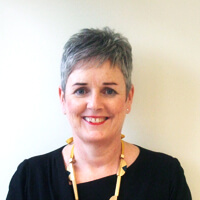
Hand hygiene practices are generally improving in many Irish public acute hospitals, but unclean hospital equipment, and poor hand hygiene practice among some healthcare staff continues to place patients at unnecessary risk of acquiring a Healthcare Associated Infection, according to a new report published in March by HIQA.
An overview report of HIQA unannounced hygiene inspections in almost all public acute hospitals over a 12-month period shows that while progress in working to meet national Infection Prevention and Control Standards has occurred in many hospitals, including the introduction of many innovative practices, all hospitals could do more to improve hand hygiene and environmental cleanliness.
Between February 2014 and January 2015, HIQA carried out 54 inspections of 49 out of the 50 public acute hospitals in Ireland. Inspections focused in particular on hospital cleanliness and hand hygiene. HIQA carried out unannounced follow-up re-inspections in five of the hospitals due to particularly poor compliance with standards and in order to promote rapid improvement between unannounced inspections.
Serious risks to patient safety were identified in a number of inspections, with HIQA issuing immediate high-risk letters to seven out of the 49 hospitals inspected. Five of these hospitals were inspected a second time. The main high-risk issues identified by the inspectors related to environment and facilities management, hand hygiene, communicable and or transmissible disease control and microbiological services.
Areas covering almost 20% of the overall bed complement in Irish public acute hospitals were inspected, totalling over 80 clinical areas, including for the first time specialist areas treating patients at higher risk of infection such as neonatal intensive care, renal dialysis and operating theatres. HIQA also continued to look at other areas treating especially vulnerable patients at higher risk of infection such as intensive care units, high dependency units and coronary care units. Other areas inspected included surgical, medical, orthopaedic, trauma and oncology services.
Inspectors regularly found poor access to hand hygiene gel dispensers for staff and hand-wash sinks that didn’t meet specifications. Basic patient equipment shared between patients was unclean in many hospitals. Commodes, mattresses, mattress covers, blood glucose monitoring kits used to monitor patient blood sugar levels and temperature probe holders were all found to be commonly unclean in many of the hospital areas inspected. In the case of unclean commodes, HIQA said this constitutes an increased risk of transmission of serious Healthcare Associated Infections such as Clostridium Difficile. In addition, in just under a quarter of hospitals it was observed that blood glucose monitoring kits (monitors or holders) were unclean. Unclean blood glucose monitoring equipment has likewise been implicated in Healthcare Associated Infection outbreaks in numerous healthcare settings, and is a concern to the Authority.
Inspectors also saw examples of good local hand hygiene initiatives and equipment cleaning practice.
HIQA’s Acting Director of Regulation Mary Dunnion said: “Some hospitals have implemented effective processes to ensure that this is the case but HIQA would recommend that all hospitals should work together to better facilitate the sharing of good practice in addressing common problems for the benefit of all patients nationally.
- Overview of inspections in public acute hospitals against the National Standards for the Prevention and Control of Healthcare Associated Infections
- HIQA Unannounced Hygiene Inspections
HIQA publishes electronic prescribing standards
HIQA has published standards for electronic prescribing and the electronic transfer of prescriptions.
The two Standards, Data model for an electronic medicinal product reference catalogue – a National Standard and ePrescription dataset and clinical document architecture standard, outline a data model for a medicinal product reference catalogue, and a data set and technical specification for electronic prescriptions.
HIQA’s Acting Director of Health Information Rachel Flynn said: “eHealth is an important enabler for transforming healthcare, and as one of the lead organisations in supporting the eHealth vision for Ireland, HIQA is committed to a programme of work that supports its implementation. ePrescribing has been identified as a key priority for Ireland in the National eHealth Strategy (2013), and multiple standards are required to enable its roll-out nationally.
“Medication error is one of the most common adverse events in Irish healthcare and ePrescribing gives health providers an important tool to safely and efficiently manage patients’ medications. The two Standards which we have published support the implementation of electronic prescribing. They provide a consistent approach to the identification and naming of medicines prescribed and dispensed, and a mechanism for safely exchanging clinical documents.
“These Standards pave the way for improved health services by reducing medicationprescription and transcription errors, leading to increased quality and efficiency, and safer services for patients. While ePrescribing is the direct computer-to-computer transmission of prescription information from GPs to pharmacies, these systems also allow for patient safety features including clinical decision support and the sharing of patient pharmacy data across multiple prescribers.”
These Standards form part of HIQA’s work through its health information function to ensure that high quality health and social care information is available to support the delivery, planning and monitorininfog of services throughout Ireland.
The two Standards – Data model for an electronic medicinal product reference catalogue – a National Standard and ePrescription dataset and clinical document architecture standard – are available at www.hiqa.ie
Universal GP services for over 70s
The Government has approved a new Bill to provide a Universal GP service for everyone over the age of 70.
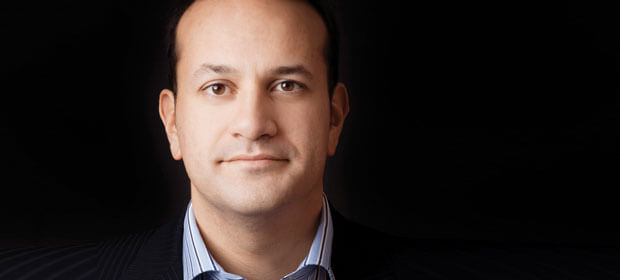
Minister for Health Leo Varadkar and Minister of State for Primary & Social Care Kathleen Lynch have received Cabinet approval for the Health (General Practitioner Service) Bill 2015, and agreement that the Bill should be published and introduced to the Oireachtas.
“This phase in the introduction of a universal GP service for the whole population will see free GP services extended to all persons over the age of 70, regardless of income or means. In tandem with separate plans for the under-sixes, this will ensure that the youngest and the oldest have access to GP care without fees. This is a significant step on the way towards universal health care,” Minister Varadkar said.
Subject to the legislation being passed by both Houses of the Oireachtas, the objective is to have a universal GP service for over 70s in Quarter 2 of this year. This is proposed to coincide with the introduction of the under six service.
Visit the new HMI website
 HMI is excited to announce the launch of our new website www.hmi.ie
HMI is excited to announce the launch of our new website www.hmi.ie
We hope you enjoy the new fresh look, find the site easy to navigate and pleasant to use and interact with us. Our aim is to provide our members and other visitors with an easier way to learn about our events, our training and services and other up to date and relevant information.
Your will find the new site is divided into four main areas – About HMI, Membership, Training and Services. Our homepage allows members and visitors to access our online journal, has links to upcoming events and also has access to our member only resource area. Our news and social media accounts are now displayed more prominently on the homepage. We will update the website with helpful information, articles and other announcements as they occur.
Members can now renew membership and book and pay for events online. For those who wish to apply for HMI membership, there is an online facility.
We welcome comments, suggestions, feedback and any questions you may have. Why not use the contact form on the website to get in touch – visit www.hmi.ie.

